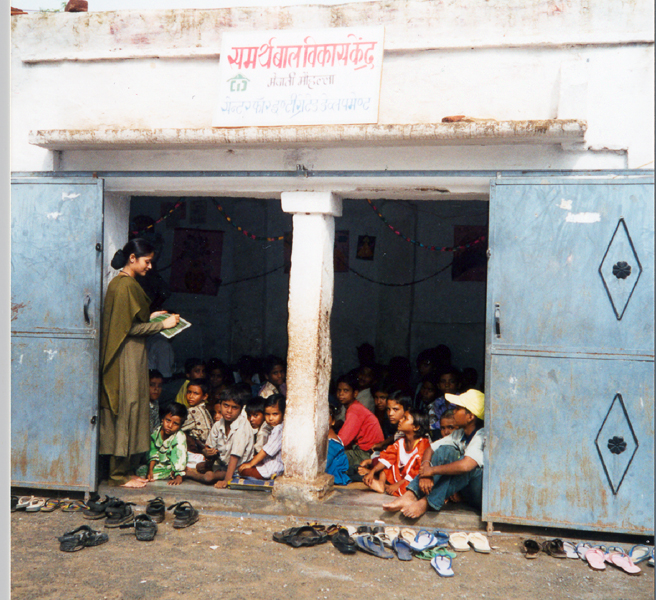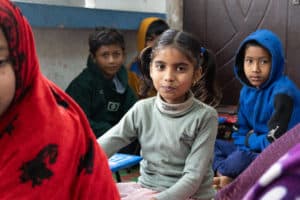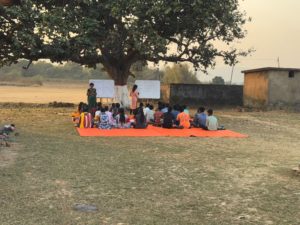No to child labour! Cid has opened nine centers that welcome young workers a few hours a day. They receive a meal, medical follow-up and participate in educational and recreational activities with the intent of reintegrating them into the school system.
Gwalior: a city of more than one million inhabitants in Madhya-Pradesh, central India. Once flourishing and industrial, factory closures brought with them unemployment that affects the majority of the active population. This serious crisis incites families to resort to child labour. More than 40,000 children work as underpaid labourers in and around Gwalior. They work in the carpet, cigarette, brick-making, waste recovery or stone-cutting industries, though Indian law prohibits the employment of children under 14 years of age.
Terre des Hommes Switzerland’s Response
In order to carry out a targeted and effective fight against child labor, the Center for Integrated Development (Cid), a partner organization of Terre des Hommes Switzerland, develops strategies specific to each employment sector, in collaboration with families, doctors, teachers and social workers.
Community meetings are held once a month where women (and more rarely, men) discuss education and children’s health, as well as issues affecting the whole neighbourhood.
The main objective of Cid is the eradication of child labour and the gradual integration of children into the government school system. Nine informal education centers are open and welcome young workers a few hours a day. They can receive a meal, participate in educational and recreational activities, and receive medical care. Sports, theater and crafts are part of the program, as are sessions on children’s rights, health and hygiene.
Cid strives to change the mindset of parents and authorities who consider child labour as normal, or who are totally uninterested in it. The organization puts pressure on employers who use a workforce that is too young, it demands enforcement of child labour laws, and it organizes awareness campaigns with the local population and with industries concerned. Parents are encouraged to school their children by leveraging savings groups that are created to compensate for their lost income.
Various initiatives, such as youth parliaments, school enrollment campaigns, advocacy and others enable young people to express themselves publicly about education and to raise awareness of children’s rights.
Children no longer go to work, but to school.





